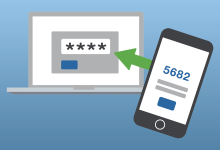
If you are concerned about your online privacy, you must have been wondering what difference it will make to use a VPN or a Private proxy. So the big question “How different is using a VPN and a proxy for online anonymity?”
It is very normal to worry about if hackers, government agencies, or companies can track what sites you visit, files you download, links you click, etc.
Now before making a choice, you will have to understand that there are significant differences between a proxy and a VPN. While both tools can protect your identity, only a VPN will encrypt your data as you browse the web. Continue reading the subsequent sections of this article to learn more.
What is VPN?
A VPN, or Virtual Private Network, is a technology that provides a secure and private connection between a user’s device and the internet.
When a user connects to a VPN, their device sends all internet traffic through an encrypted tunnel to a remote server operated by the VPN provider. This encrypts the user’s online activity and makes it difficult for third parties, such as internet service providers or hackers, to intercept or monitor the user’s internet traffic.
By using a VPN, users can protect their online privacy and security, access content that may be restricted in their geographic region, and bypass internet censorship or surveillance. VPNs are commonly used by businesses to provide employees with secure remote access to company resources and by individuals to protect their online activity while using public Wi-Fi networks.
It’s important to note that while a VPN can enhance online privacy and security, it doesn’t provide complete anonymity. Users should still exercise caution and avoid sharing sensitive information or engaging in illegal activities online, as a VPN does not make them completely invisible to authorities or law enforcement.
A Proxy address
A proxy, or proxy server, is an intermediary server that acts as a gateway between a user’s device and the internet. When a user requests a website or other online content, the request is first sent to the proxy server instead of directly to the website.
The proxy server then retrieves the requested content from the website and sends it back to the user’s device. By acting as an intermediary, a proxy server can help to hide the user’s IP address and location from the website they are accessing, as the website sees the IP address and location of the proxy server instead of the user’s device.
Proxies are commonly used for a variety of purposes, such as bypassing internet censorship or content filters, accessing content that may be restricted in a user’s geographic region, or improving network performance by caching frequently accessed content.
Types of proxies
There are several different types of proxies that can be used for different purposes. Here are some of the most common types:
- HTTP Proxy: An HTTP proxy is designed to handle HTTP requests, such as those used for web browsing. It can be used to filter, block or modify HTTP requests, as well as to cache frequently accessed content.
- SOCKS Proxy: A SOCKS proxy is a protocol-independent proxy that can handle various types of traffic, including HTTP, FTP, and SMTP. It’s often used for online gaming, as well as for accessing restricted content.
- Transparent Proxy: A transparent proxy intercepts all web traffic without requiring any configuration on the user’s device. It’s often used by ISPs to improve network performance and by organizations to filter or monitor internet usage.
- Anonymous Proxy: An anonymous proxy hides the user’s IP address from the website they are accessing, but it doesn’t encrypt their online activity. This type of proxy is often used to bypass internet censorship or access content that may be restricted in a user’s geographic region.
- High Anonymity Proxy: A high anonymity proxy hides both the user’s IP address and their identity, making it difficult for websites to track their online activity. This type of proxy is often used for online privacy and security.
- Residential Proxy: A residential proxy uses an IP address assigned by an ISP to a homeowner or a user, rather than a data center. Residential proxies are often used for web scraping, data mining, and accessing restricted content.
- Reverse Proxy: A reverse proxy is a server that sits between a user’s device and a web server, handling requests on behalf of the web server. It’s often used for load balancing, security, and caching purposes.
How different is using a VPN and a proxy for online anonymity?
Both VPNs and proxies can be used to enhance online anonymity, but they work in different ways and provide varying levels of privacy protection.
A proxy server acts as an intermediary between a user and the internet. When a user requests a website or other online content, the request is sent through the proxy server instead of directly to the website. The proxy server then retrieves the requested content and sends it back to the user. This can help hide the user’s IP address and location from the website they are accessing, but it may not encrypt the user’s online activity, leaving it vulnerable to interception by third parties.
On the other hand, a VPN (Virtual Private Network) creates an encrypted connection between a user’s device and a remote server operated by the VPN provider. The user’s internet traffic is routed through this encrypted connection, making it difficult for third parties to intercept or monitor the user’s online activity. The user’s IP address is also hidden behind the VPN server’s IP address, providing an additional layer of anonymity.
Promoted contents:
The above can then lead us to conclude that;
VPNs encrypt your information
The primary advantage of using a VPN compared to a proxy server is that with a VPN, all of your online activities and transmitted data are encrypted, which is crucial in preventing anyone, including hackers, government entities, or businesses, from monitoring your online behavior. For instance, if you access your online banking or credit card portal while utilizing a VPN, your confidential information such as account numbers, credit card numbers, and passwords will be secure as they will be concealed by encryption.
Free proxy connections can be slower
Using either proxy servers or VPNs can potentially cause a decrease in browsing speed, which is dependent on the number of users utilizing these services. Nonetheless, free proxy connections are likely to be slower and less secure as they receive limited support, offer fewer configuration options, and have the slower infrastructure.
VPN providers promote online privacy
For complete privacy, it is recommended to select a VPN provider that implements a strict no-log policy. Essentially, this indicates that the provider has committed to refrain from monitoring and storing your online activity while you are connected to their service. Consequently, such VPN providers will not possess any information to share with any parties interested in your browsing history or the files you share. Conversely, free proxies may potentially monitor your traffic and even sell your data to third parties.
You may spend more with a VPN
You can connect through free VPNs. However, many tech experts recommend going with a VPN provider that charges a fee because paid services often offer more data privacy, more secure connections, and more reliable performance. The security of free VPN can be unreliable, as many providers use only one VPN connection, called point-to-point tunneling protocol (PTTP). A paid VPN service, on the other hand, can offer users data encryption which is more secure.
Is a proxy still required if you have VPN?
Although some people will say if you are already using a VPN, then, connecting to a website or app through a proxy server would be an unnecessary step, the choice to use both will depend on the specific circumstances and reasons for using a proxy and VPN.
A VPN (Virtual Private Network) creates a secure and encrypted connection between your device and the internet, routing your traffic through an intermediary server. This can help protect your online privacy and security by masking your IP address and encrypting your internet traffic.
A proxy server, on the other hand, acts as an intermediary between your device and the internet, forwarding your requests to the destination server. Proxies can be used for a variety of purposes, such as bypassing internet restrictions, improving network performance, or monitoring internet activity.
In some cases, using a VPN may be sufficient for your needs and a proxy may not be necessary. However, there are situations where using a proxy server in conjunction with a VPN can provide additional benefits, such as further masking your online activity and helping to improve your anonymity.
For example, if you’re using a VPN to bypass internet restrictions in a country with strict censorship laws, a proxy server can provide an additional layer of protection by masking the fact that you’re using a VPN.
Ultimately, whether or not you need to use a proxy in addition to a VPN depends on your specific needs and the level of protection and anonymity you require.
What should you use, a VPN or proxy server for online anonymity?
Using either a proxy server or VPN can hide your IP address, but if you are concerned about browsing speed and only want to hide your IP from a single site or app, a free proxy server can suffice. However, for enhanced security and privacy, especially when accessing sensitive sites like online banking, a VPN is the better choice. VPNs encrypt your data, while proxy servers do not.
If cost is a concern, connecting to individual sites, apps, or file-sharing services via a proxy server is a smart option. Free proxy servers are readily available and can hide your IP address. But for browsing activities that involve multiple sites, a VPN is the preferred option.
Although some VPN providers charge for their services, it may be worth the price to ensure that your sensitive personal and financial information remains concealed from online snoops.








